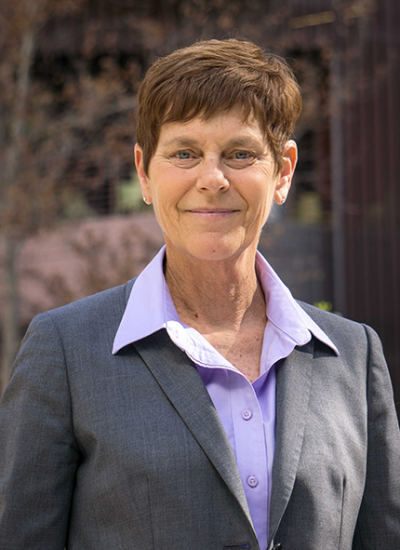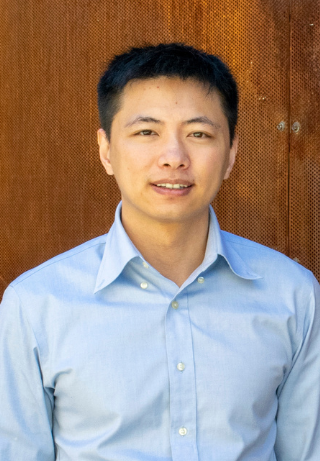The clinicians and researchers at the Skin Cancer Institute are committed to generating new ideas about skin cancer etiology, prevention, and treatment. We are also committed to supporting new scientists and their research. A skin cancer-free future requires planning today. Novel ideas and scientists growing their careers need research dollars and a supportive environment to flourish.
The ‘Skin Cancer Seed Grant Research’ competition is designed to help University of Arizona researchers test novel ideas for prevention, detection, or treatment of melanoma and other skin cancers. These proposals are small grants designed to be ‘seeds’ to help new research ideas grow into larger proposals that can be competitive for national funding, and to help young investigators grow their careers.

The 2025 seed grant round is now closed.
Applications are being reviewed.
Announcing the 2025 seed grant winners
Confirming a novel role of PD-L1 in the regulation of UV-induced skin inflammation


Erin Thornley, DO Tiffany Juan, MD/PhD student
Evaluating structural correlates of immunogenicity through non-anchor residue modifications of a cSCC neoantigen

Short-wave Photoacoustic Imaging of Basal Cell Carcinoma
2024 Skin Cancer Research Seed Grant recipients

"Crosstalk Between Cancer Cells and the Tumor Microenvironment in Skin Cancer"

"Machine-Learning-Enabled Delineation of Quantitative Tissue and Cellular Morphological Features to Improve Melanoma Diagnosis and Prognosis"
 Bonnie LaFleur, PhD
Bonnie LaFleur, PhD
"Deconvolution Methods to Guide Opportunities and Timing to Intervene with Topical Immunoprevention Strategies in cSCC"
2023 Skin Cancer Research Seed Grant recipients

"Inducing DNA Mismatch Repair Defects to Restore ICI Sensitivity in Melanoma"

"Molecular Detection of Indeterminate Melanocytic Lesions"
For further information contact: Robin B. Harris, PhD, MPH (Co-Director, Skin Cancer Institute) rbharris@email.arizona.edu or 520-626-5357.
Seed grant history
Thanks to the generous support of donors, the Skin Cancer Institute initiated the annual Skin Cancer Seed Grant Research competition in 2010. This competition and funds are designed to help University of Arizona researchers test novel ideas for prevention, detection, or treatment of skin cancer. These small grants are designed to be 'seeds' to help new research ideas grow into larger research proposals that can be competitive for national funding. It is also a way to help young investigators grow their careers and for more experienced investigators to try new research ideas and approaches.
Recipients 2022
Leslie Dennis, PhD, MS
Sally Dickinson, PhD
Recipients for 2021
Dylan Miller, MPH
"A Pilot Study of Personal UVR Dosimeters in NCAA Athletes"
Edgar Tapia, PhD
"Genomics Pilot Study for Targeted Prevention of Non-Melanoma Skin Cancer"
Recipients for 2020
Bo Sun, PhD
"A Bi-Adjuvant Nanovaccine for lmmunotherapy of Melanoma"
Russell Witte, PhD
"Clinical Photoacoustic Imaging and Spectroscopy for Assessment of Common Cutaneous Lesions"
Recipients for 2019
Delaney Stratton, NP, PhD
"A Pilot, Randomized-Controlled Trial on the Efficacy of a Microlearning-Based Skin Cancer Early Detection Intervention for Primary Care Nurse Practitioners"
Jin H. Song, PhD
"Role of H19 in Epigenetics of Melanoma"
Khiem A Tran, PhD
"A Novel Mechanism in the Immune Suppression Repertoire of Metastatic Melanoma"
Recipients for 2018
Sally Dickinson, PhD
"Mechanistic Evaluation of UV-Induced Stimulation of TLR4 in Keratinocytes Using Genetic and Pharmacological Means"
Delaney Stratton, RN
"Development and Acceptability Assessment of a Novel, Short-Burst Educational Intervention on Early Skin Cancer Detection for Primary Care Nurse Practitioners"
Georg Wondrak, PhD and Sally Dickinson, PhD
"Novel Pharmacological Inhibition of UV-Induced TLR4 Signaling Using Topical Phytochemicals"
Recipients for 2017
Jui-Chen Hsieh
"Mutations of Hairless Gene in Human Melanoma Cells: Possible Role as a Tumor Suppressor by Affecting p53 Target Genes and Apoptosis"
Paul Myrdal, PhD
"Evaluation of Synthetic Membranes for Screening Topical Skin Cancer Prevention Agents in Diffusion Studies"
Georg Wondrak, PhD
"Exploring Feasibility of Targeting TLR4 for Skin Cancer Chemoprevention Using the FDA Approved Cinnamon-Derived Natural Product and Food Additive Cinnamaldehyde"
Recipients for 2015
Sally Dickinson, PhD
"Targeting TLR4 in UV-Induced Skin Carcinogenesis"
Karen Hastings, MD, PhD
"GILT as a Prognostic Marker in Primary Melanoma"
Myra Muramoto, MD, MPH
"Protocol Development for Massage Therapist Education in Skin Cancer Early
Detection"
Recipients for 2013-2014
Yira Bermudez, PhD, MBA
"Balancing the Angiogenic Diagnosis Scale for the Early Diagnosis of Melanoma"
Myra Muramoto, MD, MPH
“Preliminary Studies for Massage Therapist Education in Skin Cancer Early Detection and Sun Safety Education”
Joshua Williams PhD
“Assessment of Metformin as a Reactive Scavenger for the Chemoprevention of Non-Melanoma Skin Cancer"
Recipients for 2012-2013
Jana Jandova, PhD
"Evaluating the Role of mtDNA Mutations in the Development of Non-melanoma Skin Cancer"
Publication: Mutations in BALB mitochondrial DNA induce CCL20 up-regulationpromoting tumorigenic phenotypes
Recipients for 2010-2011
Jeff Stone, PhD
"An investigation of whether creating hypocrisy about performing sun protection behaviors can engage an individual’s self-regulation process to promote long-term behavior change"
Yira Bermudez, PhD
"Validation of an analytical method to quantify folate species involved in DNA repair and synthesis in human skin and tissue"
Sally Dickinson, PhD
"Potential for sulforaphane to inhibit melanoma metastasis via inhibition of AP- 1 activity"
Robert Krouse, MD
"Prognostic value of karyometry for cutaneous squamous cell carcinoma"



